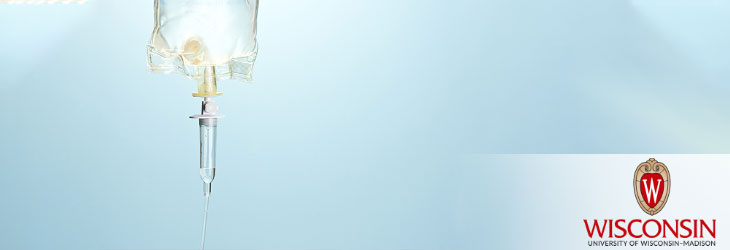Drug Delivery

Phage-Cured Lactobacillus Strains for Therapeutic Delivery
WARF: P170020US01
Inventors: Jan Peter Van Pijkeren, Jeehwan Oh
The Wisconsin Alumni Research Foundation (WARF) is seeking commercial partners interested in a modified strain of L. reuteri permanently cured of two prophages without DNA damage, and demonstrably more robust in vivo.
Overview
In addition to key roles in food and biofuel production, probiotic strains of lactic acid bacteria are being exploited in medicine as therapeutic delivery vehicles. One obstacle is that bacteriophages pervasive in the lactobacilli genome can be induced/reactivated as a result of various environmental (stress) factors, which compromises viability and robustness.
Several methods have been developed to delete phages from bacterial genomes in vitro, including treatment with ultraviolet light and the chemotherapy drug mitomycin C. But these approaches are known to damage DNA and cause mutations. Furthermore, these approaches generally do not make the strains resistant to future bacteriophage incorporation in the genome.
Several methods have been developed to delete phages from bacterial genomes in vitro, including treatment with ultraviolet light and the chemotherapy drug mitomycin C. But these approaches are known to damage DNA and cause mutations. Furthermore, these approaches generally do not make the strains resistant to future bacteriophage incorporation in the genome.
The Invention
Using a newly developed counterselection method and promoter construct, UW–Madison researchers have created a modified strain of L. reuteri cured of two prophages and variations thereof. In the process of deleting the phages from the genome the researchers also deleted the recognition site (attB), thereby preventing future phage integration at the site.
The approach used to develop the novel strain does not induce DNA damage and effectively eliminates bacteriophages that could otherwise reactivate and lyse the host cell. The strain is more robust for surviving transit through the gastrointestinal tract, which the researchers envision will enhance its ability to deliver therapeutic proteins in vivo.
The approach used to develop the novel strain does not induce DNA damage and effectively eliminates bacteriophages that could otherwise reactivate and lyse the host cell. The strain is more robust for surviving transit through the gastrointestinal tract, which the researchers envision will enhance its ability to deliver therapeutic proteins in vivo.
Applications
- Available as a biomaterial
- Probiotic use, therapeutic delivery vehicle, production host for enzymes or biofuels
Key Benefits
- The strain is expected to be more robust and resistant to stress-induced phage induction/lysis.
- Improved survival in vivo
- Unlike other methods, no DNA-damaging agents were used.
- Modified recognition site should prevent phage reintegration.
Stage of Development
The researchers confirmed bacteriophage deletion using PCR, and sequenced the strain to confirm that both attB sites were modified. Mouse experiments confirmed that the prophage-deletion strain is more robust in its ability to survive gastrointestinal survival. In vitro experiments demonstrated the strain is more resistant to exposure to low pH.
Additional Information
For More Information About the Inventors
Tech Fields
For current licensing status, please contact Rafael Diaz at [javascript protected email address] or 608-960-9847